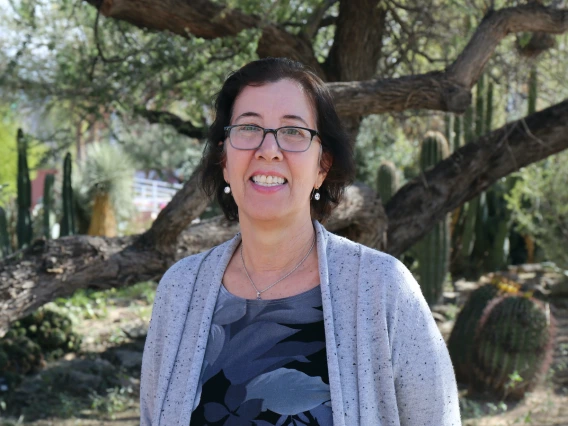
Aiming to create a more vibrant and dynamic approach to literature, a new course in development will connect students with an array of analytical and interpretative tools, including films, digital mapping, sociopolitical and environmental data, and assignments that draw on personal experience.
The course from Kátia da Costa Bezerra, “Learning the Power of Storytelling: Creating New Narratives about Brazil and Mexico,” was given the Dorrance Dean's Award for Opening the Canon. Part of the College of Humanities Fearless Inquiries Project, the award annually supports a faculty member in creating a new course with $20,000 in funding.
Bezerra, a Professor in the Department of Spanish and Portuguese and Director of the World Literature bachelor’s degree program, said the course will introduce students to diverse types of texts, both in popular culture and literature, exposing them to experiences that transcend cultural and linguistic barriers.
“As educators who teach literature, we always ask ourselves: How can I create a window in which students can experience other voices, stories, and perspectives?” she said. “The course is designed to attract a diverse group of students across disciplines and encourage students to have a more active role in their learning process.”
The course will be divided into two parts, starting with two popular culture traditions: Literature on String, the inexpensively printed chapbooks sold by street vendors in Brazil, and corridos, the narrative ballads of Mexican folk culture. Both traditions cover a variety of issues that reflect on societal issues like lifestyle and politics, and how they change over time. After reading examples, students will create their own chapbooks or corridos, writing and illustrating their own personal stories and performing them in class.
“These different texts are tangible records of people’s ideas, concerns and dreams that will allow students to reflect on a diversity of lived experiences,” Bezerra said.
The second portion of the course will focus on major literary works, Graciliano Ramos’ Barren Lives, the tragic story of a peasant family in the Northeastern of Brazil, who driven by the drought, moves from place to place, enduring hardships while still dreaming of a better life; and The Medicine Man, a short story written by Francisco Rojas González, the recipient of a Mexican National Prize for Literature. Student projects related to both works will analyze related films, songs and paintings, and use digital mapping to add data from a variety of sources to add economic, cultural or environmental context.
“The stories, images and videos will enable students to gain a more well-rounded understanding of not only the society in Brazil and Mexico, but how political and socio-economic practices have shaped our contemporary society,” Bezerra said.
During this spring and summer, Bezerra will design and create the course syllabus, select course materials, adapt the digital tools and begin the course approval process, with a goal to offer the course beginning in the spring semester of 2024.
“The final goal is to provide students with new analytical and interpretative tools that will be essential in their personal and professional life. The open-ended and participatory format of this course will enable students to see more perspectives, cultures and experiences,” she said. “Discussing their similarities and differences, students can question, relate to, and reflect on issues such as climate change, stereotypes, poverty, migration and social justice.”

